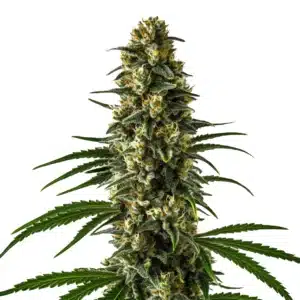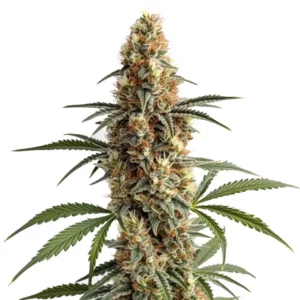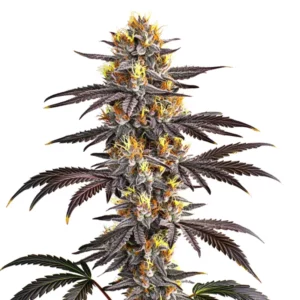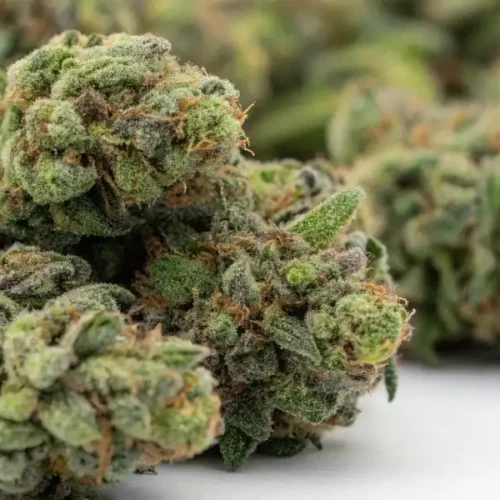
What Enzymes Metabolize Cannabis?
When you consume cannabis, it’s not just a simple case of the plant’s compounds immediately interacting with your body. Instead, your body has to metabolize the cannabis, breaking it down into components that your system can use. This process primarily takes place in the liver, where certain enzymes play a crucial role.
So, what enzymes metabolize cannabis? The answer lies in two key enzymes: cytochrome P450 3A4 (CYP3A4) and cytochrome P450 2C9 (CYP2C9). These enzymes are responsible for breaking down the main psychoactive compound in cannabis, delta-9-tetrahydrocannabinol (THC), into metabolites. It’s these metabolites that your body can use.
Recognizing the enzymes that break down THC is crucial to appreciating the effects of cannabis. When these enzymes metabolize THC, they create metabolites that are sometimes even more potent than the original compound. The process of metabolization can also affect how long the effects of cannabis last and how intense they are.
The strain of cannabis can also impact the metabolization process. For example, the OG Kush strain from Blimburn Seeds is known for its high THC content, which means more work for the aforementioned enzymes. Different strains can produce different metabolites, further influencing the overall cannabis experience.
How the Enzymes Break Down THC
The cytochrome P450 enzymes are incredibly important for metabolizing THC. Once THC enters your body, it’s quickly absorbed and distributed to various tissues, including the liver. It’s here where our two key enzymes, CYP3A4 and CYP2C9, come into play.
These enzymes convert the THC into a compound known as 11-hydroxy-THC. This metabolite is actually more potent than THC itself, and is responsible for the prolonged effects of cannabis. It’s ultimately this compound that your body uses.
In comprehending the enzymes that break down THC, it’s important to note that this process is not a one-and-done situation. Instead, the conversion of THC into 11-hydroxy-THC is just the first step in a series of transformations that happen before the body can fully utilize the compounds. This process is complex, and the efficiency with which it happens can greatly affect a person’s experience with cannabis.
It’s also worth noting that the specific pathway through which THC is metabolized can vary depending on various factors. These can include the person’s overall health, their genetics, the method of cannabis consumption, and even the specific strain of cannabis being used. All these factors can impact how quickly and efficiently the body can break down THC.
Which Enzymes are Responsible for Metabolizing Cannabis and what enzymes metabolize cannabis?
We’ve established that CYP3A4 and CYP2C9 are the key enzymes involved in the metabolization of cannabis. However, it’s worth noting that other enzymes also play a role in this process. These include other members of the cytochrome P450 family, such as CYP2C19 and CYP1A2.
The Gorilla Glue #4 strain from Blimburn Seeds, for example, contains a mix of THC and another cannabis compound, cannabidiol (CBD). This strain requires the action of a broader range of enzymes to fully metabolize its compounds.
When trying to answer the question, “Which enzymes are responsible for metabolizing cannabis?”, it’s essential to remember that the process is multifaceted. While CYP3A4 and CYP2C9 play a critical role, they are not the only ones involved. The body’s ability to metabolize cannabis effectively is a complex process that relies on several enzymes working together.
The effectiveness of these enzymes can vary from person to person. What enzymes metabolize cannabis? Factors such as genetics, overall health, and even diet can influence how well these enzymes work. This explains why different people can have different reactions to the same strain of cannabis. Essentially, the body’s ability to process cannabis is as unique as the individual consuming it.
Promos & Deals
How Does the Human Body Metabolize Cannabis?
The process of metabolizing cannabis starts as soon as the compounds are absorbed into the body. This can happen through the lungs if cannabis is smoked or vaped, or through the digestive system if it’s eaten. Once absorbed, the compounds are transported in the bloodstream to the liver.
In the liver, the enzymes we’ve discussed get to work. They convert the THC into 11-hydroxy-THC, which is then further broken down into another compound, THC-COOH. This final metabolite is what drug tests look for when determining cannabis use.
Grasping how the human body metabolizes cannabis is crucial to comprehend the effects of the plant. The process may start with absorbing the compounds, but it continues in the liver, where enzymes like CYP3A4 and CYP2C9 transform these compounds into metabolites. These metabolites can exert effects that are often more potent than the original compound and last much longer
Furthermore, the body’s ability to metabolize cannabis efficiently can also impact how quickly a person feels the effects. For example, someone with a high-functioning liver and efficient enzymes might start feeling the effects within minutes of consumption. On the other hand, someone with less efficient enzymes might need to wait a little longer to experience the same effects. What enzymes metabolize cannabis? This process is influenced by various enzymes in the body, which play a crucial role in how cannabis is broken down and processed.
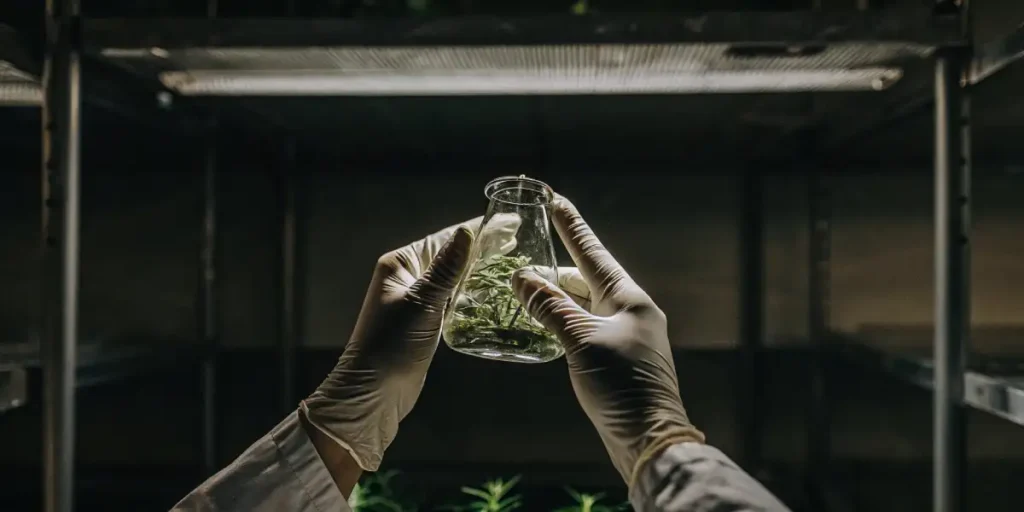
The Function of Liver Enzymes in Cannabis Metabolism
The liver is the primary site of cannabis metabolism, and the enzymes within the liver are vital to this process. The cytochrome P450 enzymes, especially CYP3A4 and CYP2C9, are the main players in this process. These enzymes break down THC into metabolites that the body can use.
For example, the Girl Scout Cookies strain from Blimburn Seeds is known for its high THC content. This means it’s particularly reliant on these liver enzymes for metabolism.
The function of liver enzymes in cannabis metabolism cannot be overstated. These enzymes are what allow the body to break down the complex compounds in cannabis into simpler ones that the body can use. Without these enzymes, the body would not be able to metabolize THC efficiently, and the effects of cannabis would be significantly altered.
Additionally, it’s important to note that the liver does more than just metabolize THC. It also plays a crucial role in metabolizing other compounds found in cannabis, such as cannabidiol (CBD). This means that the liver and its enzymes play a pivotal role in determining how a person experiences the effects of different strains of cannabis.
Effects of Enzymes on Cannabis Metabolization in the Body
The enzymes involved in metabolizing cannabis have a significant impact on how the body experiences the effects of the plant. The more efficiently these enzymes work, the faster the body can break down THC and the quicker you’ll feel the effects. However, this also means the effects may wear off sooner.
On the other hand, if the enzymes work slowly, you might not feel the effects as quickly. But when they do kick in, they’re likely to last for a longer period. This is why it’s important to start with a low dose of cannabis and gradually increase it until you find the amount that works best for you.
Knowing the effects of enzymes on cannabis metabolization in the body is key to having a safe and enjoyable cannabis experience. What enzymes metabolize cannabis? If the enzymes work quickly, the effects of cannabis can kick in quickly but may also wear off sooner. On the other hand, if the enzymes work more slowly, the effects might take longer to set in but could also last longer. This can help individuals tailor their cannabis consumption to achieve the desired effects.
It’s also important to note that the efficiency of these enzymes can be influenced by various factors. For example, someone who frequently consumes cannabis might find that their body becomes more efficient at metabolizing it over time. This could mean that they need to consume more to achieve the same effects, a phenomenon known as tolerance.
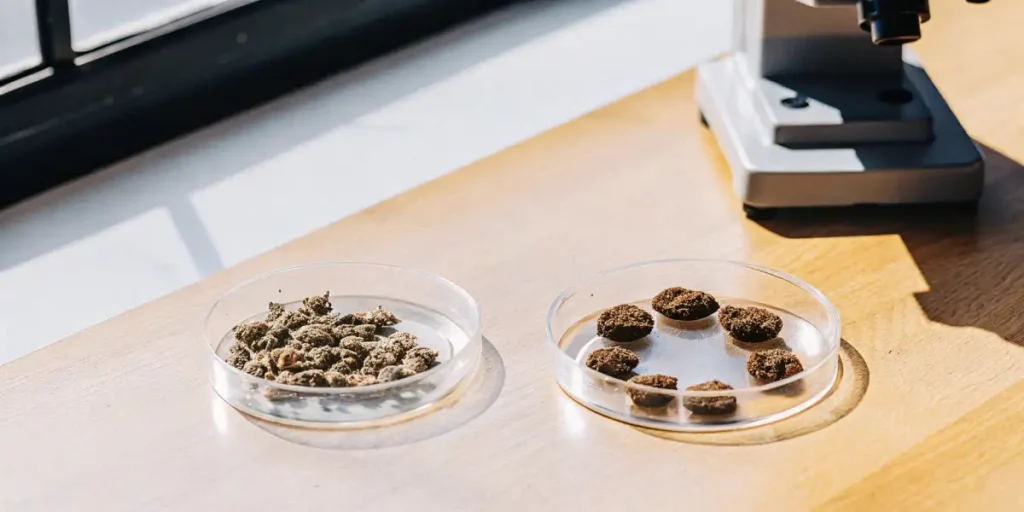
FAQs about What Enzymes Metabolize Cannabis
How does cannabis metabolism vary between individuals?
Individuals can metabolize cannabis differently due to a variety of factors. These include the efficiency of their liver enzymes, their overall health, and their genetics. Some people may have more efficient enzymes, which can process THC faster, while others may have less efficient enzymes, which process THC more slowly.
For example, a person with efficient enzymes might feel the effects of the Girl Scout Cookies strain quicker, but the effects might also wear off sooner. Conversely, someone with less efficient enzymes might feel the effects slower, but they might also last longer.
When considering how cannabis metabolism varies between individuals, it’s important to remember that many factors can influence this process. Age, sex, lifestyle, and even the method of consumption can all play a role. This is why it’s difficult to predict exactly how a person will react to cannabis, even if they’ve used it before.
Furthermore, the enzymes that metabolize cannabis can also be affected by other substances. For example, certain medications can inhibit or enhance the activity of these enzymes, thereby affecting how the body metabolizes cannabis. This is why it’s always important to discuss cannabis use with a healthcare provider, especially if you’re taking other medications.
Are there ways to speed up or slow down cannabis metabolism?
While it’s not possible to drastically alter the speed of your cannabis metabolism, there are some small changes you can make. Staying hydrated, maintaining a healthy diet, and regular exercise can support your liver health and potentially improve the efficiency of your enzymes. However, it’s important to note that the effects of cannabis can still vary greatly between individuals, regardless of these factors.
For example, even with optimal liver health, the high THC content in the OG Kush strain might still produce strong effects that last longer in some people than others.
Again, it’s important to remember that while certain lifestyle changes can support overall liver health and potentially improve enzyme efficiency, they cannot drastically alter the speed of cannabis metabolism. Even with a healthy lifestyle, factors like genetics and overall health can still greatly influence how the body metabolizes cannabis.
Additionally, it’s worth noting that while these lifestyle changes can potentially improve the efficiency of the enzymes that metabolize cannabis, they cannot change the inherent characteristics of these enzymes. For example, some people may naturally have more efficient enzymes due to their genetics, and no amount of lifestyle changes can alter this.
Can the strain of cannabis affect how it’s metabolized?
Absolutely. Different strains of cannabis can have varying levels of THC and CBD, along with other compounds. These differences can influence how the body metabolizes the cannabis. Strains with higher THC levels, like the Gorilla Glue #4, may require more work from the enzymes to break down the THC into usable compounds.
It’s also worth noting that the method of consumption can impact how quickly the cannabis is metabolized. Smoking or vaping cannabis can lead to faster absorption and quicker effects, while consuming edibles can result in slower absorption and longer-lasting effects.
The strain of cannabis can indeed affect how it’s metabolized. Each strain has a unique profile of cannabinoids and terpenes, which can influence how the body breaks it down. For example, strains with high levels of THC might be metabolized more slowly, as it takes more work for the enzymes to break down this compound. On the other hand, strains with lower levels of THC might be metabolized more quickly.
Furthermore, the method of consumption can also affect how the cannabis is metabolized. What enzymes metabolize cannabis? When cannabis is smoked or vaped, the compounds are absorbed directly into the bloodstream and sent to the liver for metabolism. However, when cannabis is consumed orally, it first has to pass through the digestive system, which can slow down the metabolism process.
What are the effects of metabolizing cannabis in the body?
The effects of metabolizing cannabis in the body can vary greatly between individuals. Some people might feel the effects of cannabis almost immediately, while others might not notice anything for up to an hour. The intensity and duration of the effects can also vary, depending on factors like the efficiency of the enzymes and the strain of cannabis used.
For example, the Girl Scout Cookies strain is known for its strong, long-lasting effects. This can be attributed to its high THC content, which requires more work from the enzymes to metabolize.
The effects of metabolizing cannabis in the body can be quite diverse, ranging from feelings of euphoria and relaxation to increased sensory perception and alterations in time perception. These effects can be influenced by several factors, including the strain of cannabis, the method of consumption, and the individual’s unique biochemistry.
It’s also important to remember that the effects of cannabis are not solely determined by THC. Other compounds in cannabis, such as CBD and terpenes, can also influence the effects. For example, CBD can counteract some of the psychoactive effects of THC, while terpenes can influence the overall experience through their unique aromas and flavors.
What happens to the metabolites of cannabis in the body?
Once the enzymes have broken down THC into its metabolites, these compounds can be used by the body. The main metabolite, 11-hydroxy-THC, is actually more potent than THC itself. This is why the effects of cannabis can be more prolonged than the initial high.
Eventually, these metabolites are excreted from the body through urine. This is why drug tests often look for the presence of THC-COOH, the final metabolite of THC, when determining cannabis use.
After the body has used the metabolites of cannabis, they are filtered out of the bloodstream by the kidneys and excreted in the urine. This process can take several days or even weeks, depending on the individual’s metabolism and the amount of cannabis consumed. This is why drug tests can detect cannabis use long after the effects have worn off.
It’s also worth noting that while the main metabolite of THC is excreted in the urine, small amounts can also be excreted in sweat and feces. Additionally, some metabolites can be stored in body fat and slowly released back into the bloodstream over time. This can lead to a prolonged detection window for cannabis use, especially in heavy users.










